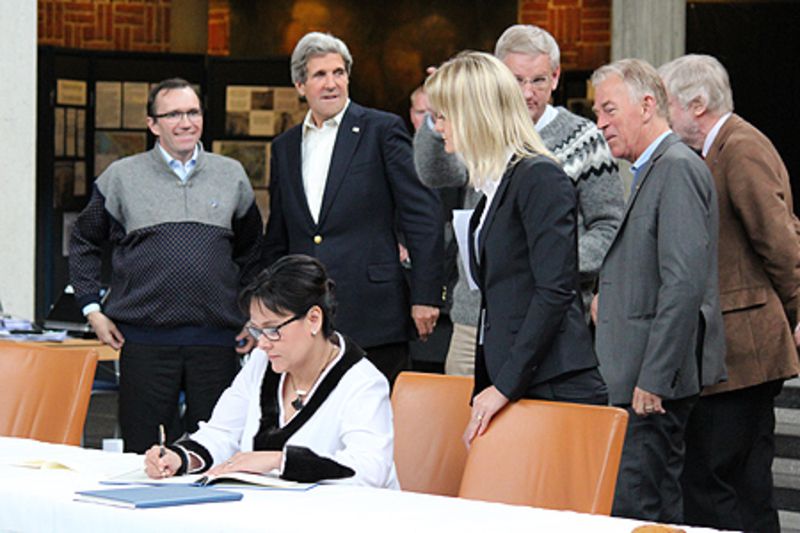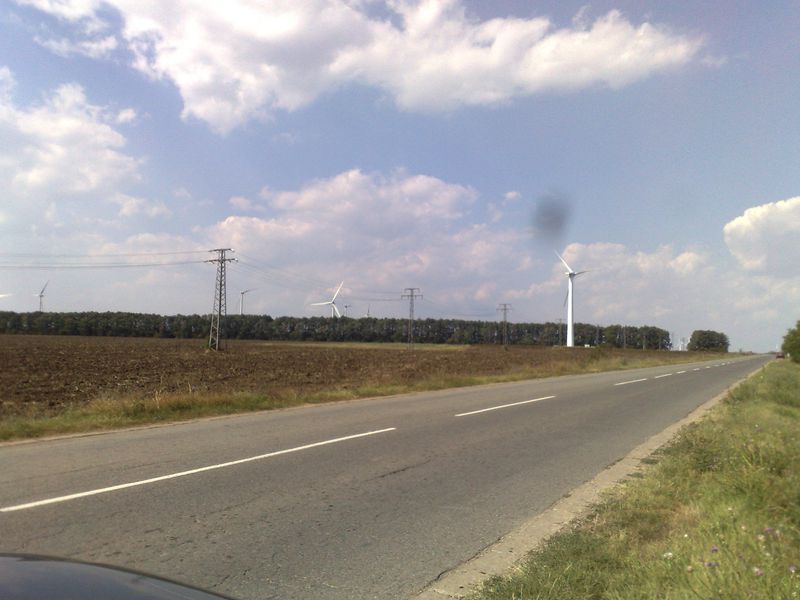The climate and the science fiction
Adelina Marini, August 12, 2009
 The discussions about preventing climate change sometimes can be classified as real science fiction because of their inevitability and also, because of the certainty that politicians will not manage to agree reasonable reduction of carbon emissions which, on their part, will lead to restraining global warming up to 2 degrees. Furthermore, it is not quite certain whether this would prevent catastrophic consequences for a large part of humanity as well as for our civilization. In this sense is the article in the science section of the "New York Times", called "The Earth Is Warming? Adjust the Thermostat"!
The discussions about preventing climate change sometimes can be classified as real science fiction because of their inevitability and also, because of the certainty that politicians will not manage to agree reasonable reduction of carbon emissions which, on their part, will lead to restraining global warming up to 2 degrees. Furthermore, it is not quite certain whether this would prevent catastrophic consequences for a large part of humanity as well as for our civilization. In this sense is the article in the science section of the "New York Times", called "The Earth Is Warming? Adjust the Thermostat"!
In it the author John Tierney proposes several ways to keep Earth relatively cool:
Plan A: Keep talking about the weather. This has been the preferred approach for the past two decades in Western Europe, where leaders like to promise one another that they will keep the globe cool by drastically reducing carbon emissions. Then, when their countries’ emissions keep rising anyway, they convene to make new promises and swear that they really, really mean it this time.
Plan B: Do something about the weather. Originally called geoengineering, this approach used to be dismissed as science fiction fantasies: cooling the planet with sun-blocking particles or shades; tinkering with clouds to make them more reflective; removing vast quantities of carbon from the atmosphere.
According to the newspaper, this approach still seems quite grandiose but still is very practical and now goes by the name of climate engineering. Several recent reviews of these ideas conclude that cooling the planet would be technically feasible and economically affordable. Of course skeptics are too many and their arguments are no less significant and they are that it is possible that such an interference might cause unexpected consequences.
The National Academy of Sciences and Britain’s Royal Society are preparing reports on climate engineering, and the Obama administration has promised to consider it. But so far there has been virtually no government support for research and development — certainly nothing like the tens of billions of dollars allotted to green energy and other programs whose effects on the climate would not be felt for decades.
Against $100 mn climate engineers could begin field tests within five years, says Ken Caldeira of the Carnegie Institution for Science, quoted by the newspaper. He and his group have published a report in which is analyzing the use of aerosol particles to reflect shortwave solar radiation back into space. These particles could be lofted into the stratosphere to reproduce the effects of sulfate aerosols  from volcanic eruptions like that of Mount Pinatubo in 1991, which was followed by a global cooling of nearly 1 degree. Naturally, the effect will go away with the particles falling back to Earth. Keeping the planet cooled steadily (at least until carbon emissions declined) might cost $30 billion per year if the particles were fired from military artillery, or $8 billion annually if delivered by aircraft, according to the report of the climate engineers.
from volcanic eruptions like that of Mount Pinatubo in 1991, which was followed by a global cooling of nearly 1 degree. Naturally, the effect will go away with the particles falling back to Earth. Keeping the planet cooled steadily (at least until carbon emissions declined) might cost $30 billion per year if the particles were fired from military artillery, or $8 billion annually if delivered by aircraft, according to the report of the climate engineers.
There are other ideas - like spraying seawater mist from ships up toward low-lying clouds, which would become brighter and reflect more sunlight away from Earth. This technology, according to researchers might prove to be cheaper and very efficient. Other researchers though warn that it is impossible to do a cost-benefit analysis of these engineering proposals because the potential downside is so uncertain — and large. Injecting aerosols into the stratosphere or brightening clouds would do more than just cool the planet which might lead to serious droughts.
In each case it is clear that no matter if the discussion is scientific, engineer, political or economical, it is still rudimentary and shows how people are not prepared to stop our harmful human activity. We are not even certain whether what is going on with the climate is the result of our activity. It is inevitable in this case that we should think how small we are in terms of the planet. Even worse is to think how weak we are to do anything to save our, for now, only home.
 | © Government of Sweden
| © Government of Sweden | © КРИБ
| © КРИБ | © euinside
| © euinside